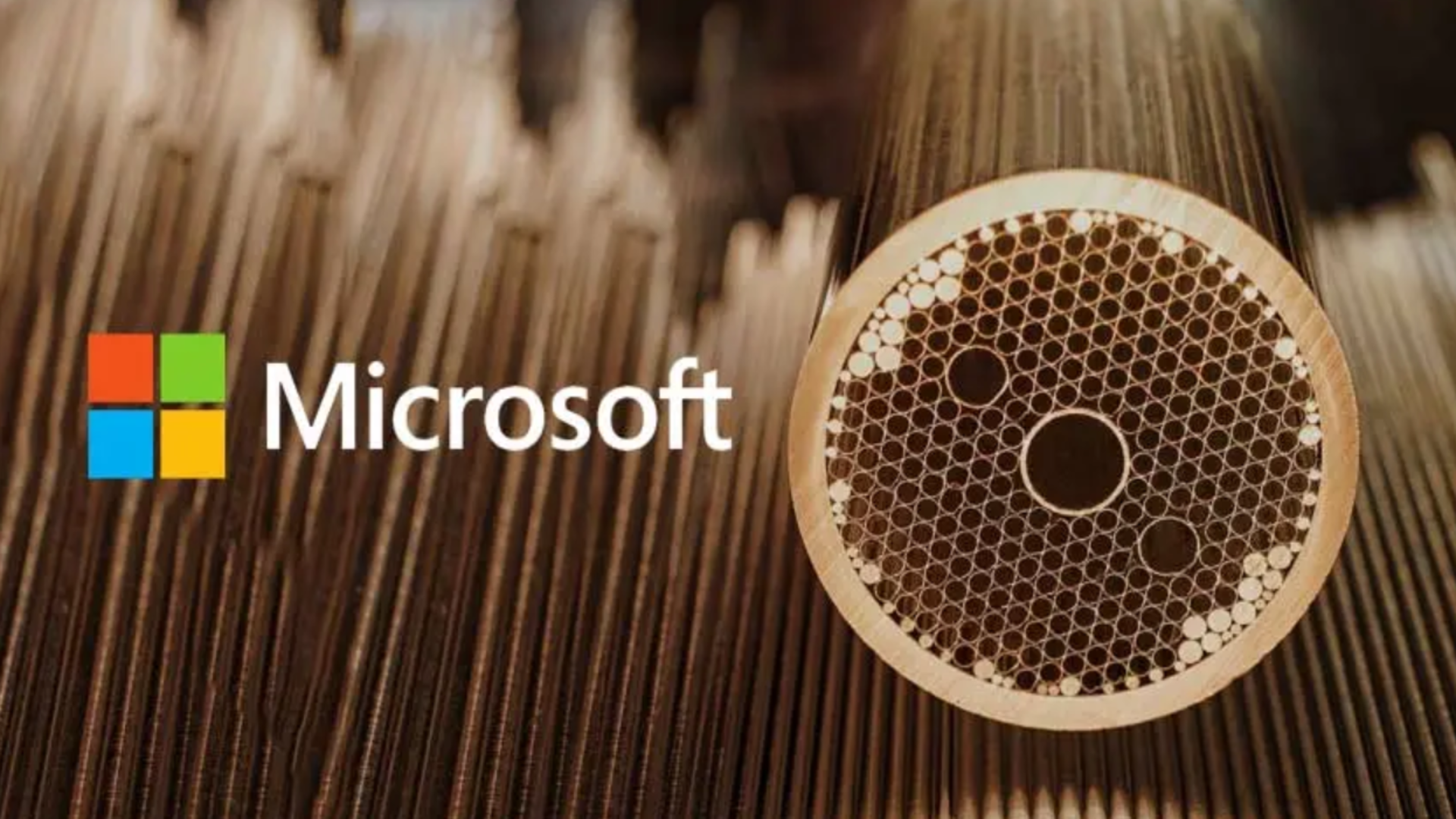Microsoft just got its hands on 100,000 Nvidia GB300 chips - and all it took was investing $33 billion in these startups
AI data center growth has pushed U.S. energy prices up 267%

Sign up for breaking news, reviews, opinion, top tech deals, and more.
You are now subscribed
Your newsletter sign-up was successful
- Microsoft’s Nebius deal gives it 100,000 Nvidia chips without building more infrastructure
- Neocloud providers like CoreWeave and Lambda now power Microsoft’s expanding AI backbone
- Hundreds of thousands of Nvidia GPUs will soon fill Microsoft’s Wisconsin site
Microsoft’s growing reliance on third-party data center operators has entered a new phase following a $19.4 billion deal with Nebius.
Nebius is one of several “neocloud” providers it has backed with a combined $33 billion in investment, and with this deal, Microsoft now has access to more than 100,000 of Nvidia’s newest GB300 chips.
Microsoft has generated billions by renting computing power to customers and aims to increase that figure to justify its expanding AI data center budget.
Leasing compute to power AI ambitions
The deal is part of Microsoft’s broader effort to boost its AI capabilities and expand the computing power behind its growing ecosystem of AI tools without having to commit all of its own infrastructure.
This shows how Microsoft is managing its massive AI demand by renting capacity from others while reserving its own facilities for paying clients.
The company’s internal data center infrastructure, already one of the largest in the world, has been positioned as a commercial service.
The Nebius deal gives Microsoft temporary access to Nvidia’s latest GB300 NVL72 server racks, each containing 72 of the high-end B300 GPUs.
Sign up to the TechRadar Pro newsletter to get all the top news, opinion, features and guidance your business needs to succeed!
Estimates place the cost of a fully equipped rack at around $3 million, suggesting Nebius’s share of the deal could exceed $4 billion in hardware alone.
For Microsoft, it is a shortcut to vast computing resources without waiting for its own upcoming facilities to come online.
Microsoft’s partnerships with neocloud providers like CoreWeave, Nscale, and Lambda show a shift toward spreading AI workloads across smaller, specialized compute networks.
These companies act as intermediaries, renting their GPU clusters to giants like OpenAI and now Microsoft.
Meanwhile, Microsoft is also investing heavily in its physical footprint.
The company’s upcoming 315-acre data center complex in Mount Pleasant, Wisconsin, is expected to host hundreds of thousands of Nvidia GPUs.
It will also include enough fiber optic cable to “wrap around the earth 4.5 times.”
Designed with a self-sustaining power supply, it signals an attempt to reduce dependency on external providers in the long run.
The rapid buildout of GPU-driven data centers has already begun to strain local energy systems.
Wholesale power prices near major AI facilities have reportedly risen 267% over five years, prompting concern among U.S. residents and regulators.
Environmental impacts are also drawing attention, with new projects in Tennessee and Wyoming linked to rising emissions and energy use.
Nvidia’s own $100 billion investment in OpenAI has intensified questions about market concentration and antitrust risks.
Microsoft’s deep ties to both Nvidia and OpenAI now place it at the center of the same debate.
This shows how the pursuit of computational scale continues to blur the lines between partnership and dominance in the AI ecosystem.
Via Toms Hardware
Follow TechRadar on Google News and add us as a preferred source to get our expert news, reviews, and opinion in your feeds. Make sure to click the Follow button!
And of course you can also follow TechRadar on TikTok for news, reviews, unboxings in video form, and get regular updates from us on WhatsApp too.
You might also like
- These are the best AMD graphics cards you can buy now
- Take a look at the best mini PCs we've rounded up
- Huge numbers of managers admit to using AI to convincingly draft or revise performance reviews

Efosa has been writing about technology for over 7 years, initially driven by curiosity but now fueled by a strong passion for the field. He holds both a Master's and a PhD in sciences, which provided him with a solid foundation in analytical thinking.
You must confirm your public display name before commenting
Please logout and then login again, you will then be prompted to enter your display name.